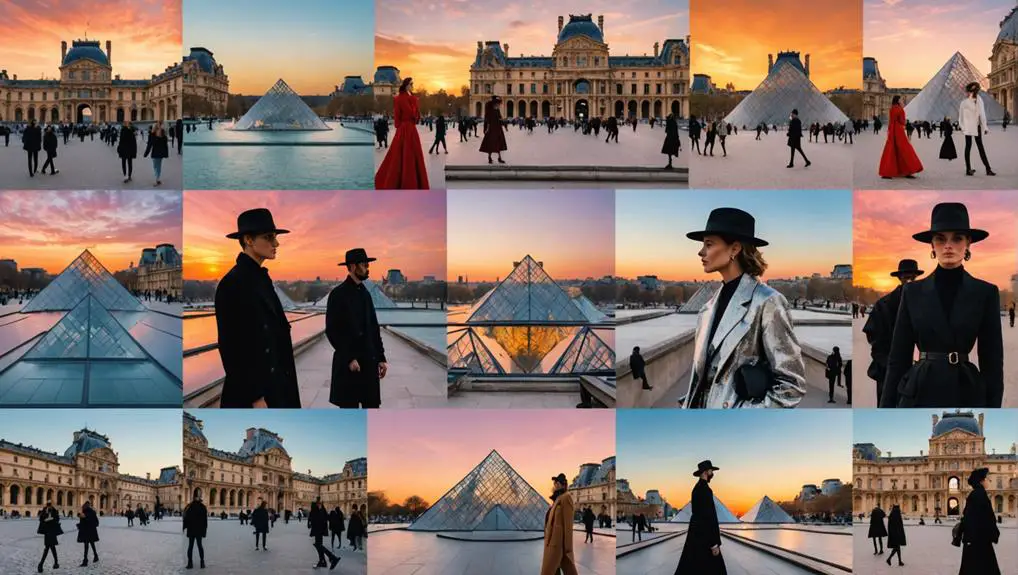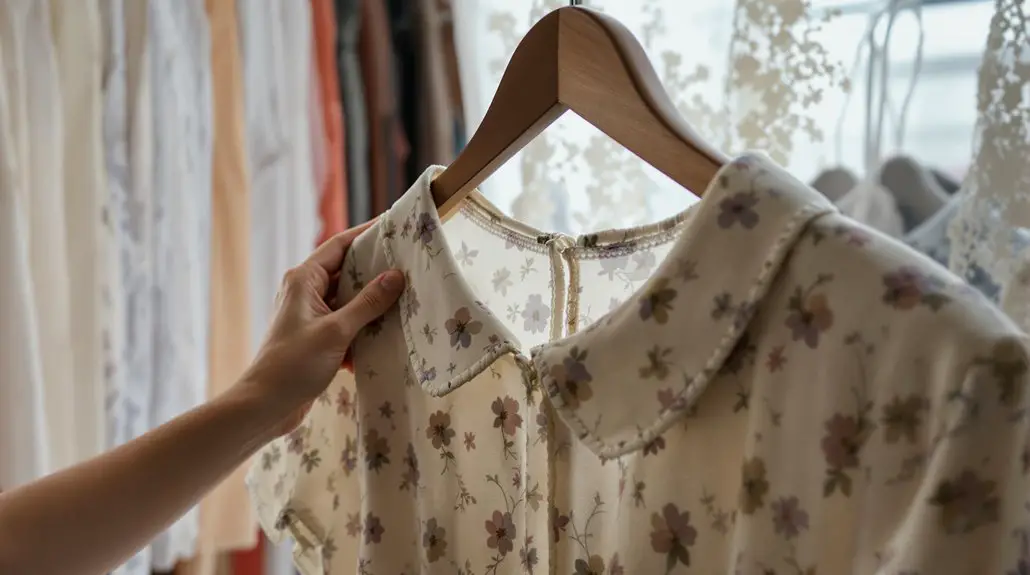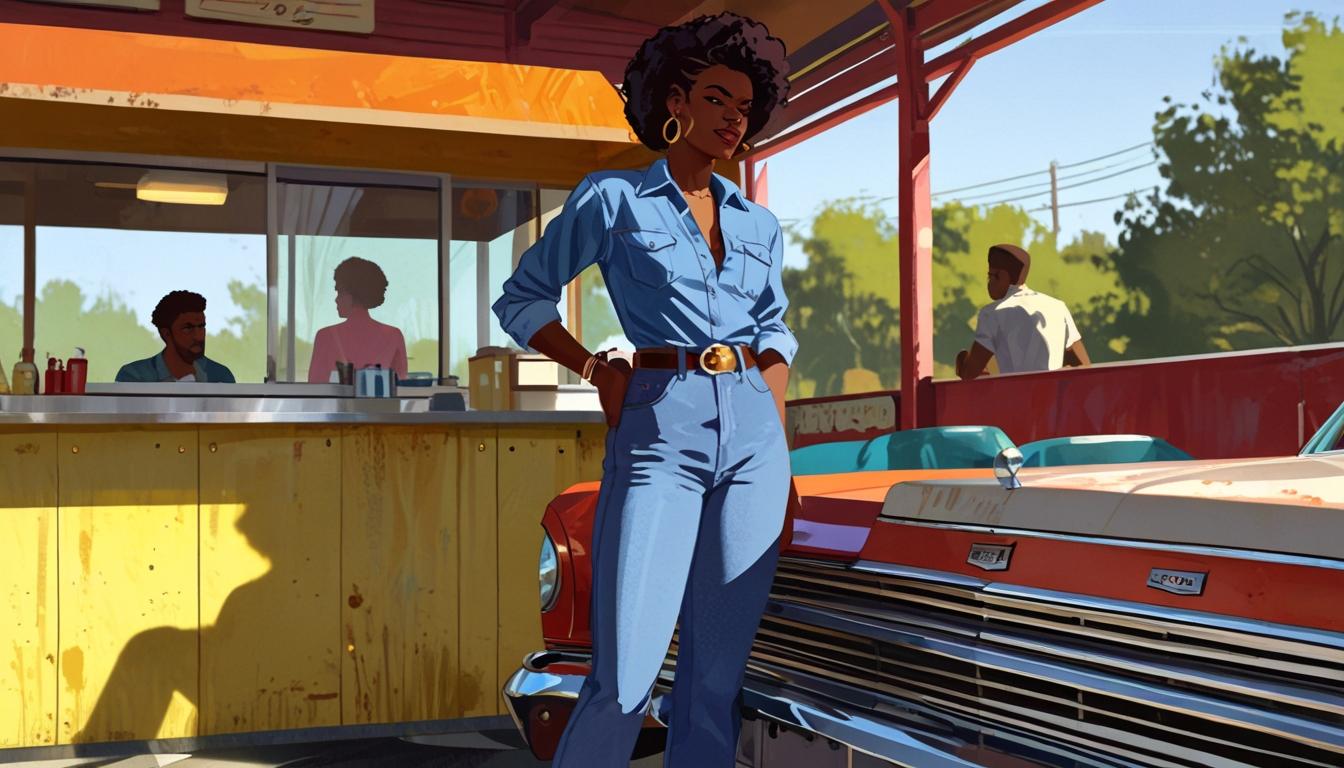You might think Paris Fashion Week is all about glitz and glamour, but its evolution tells a deeper story of cultural shifts and technological advancements. From its humble beginnings in the late 19th century to the vibrant, inclusive platform it is today, the event reflects society's changing values and the democratization of fashion. As you explore its milestones, you'll notice how digital innovations have reshaped presentations, making them more accessible than ever. But what does this mean for the future, especially regarding sustainability and inclusivity? The answers might surprise you.
Historical Origins of Fashion Week
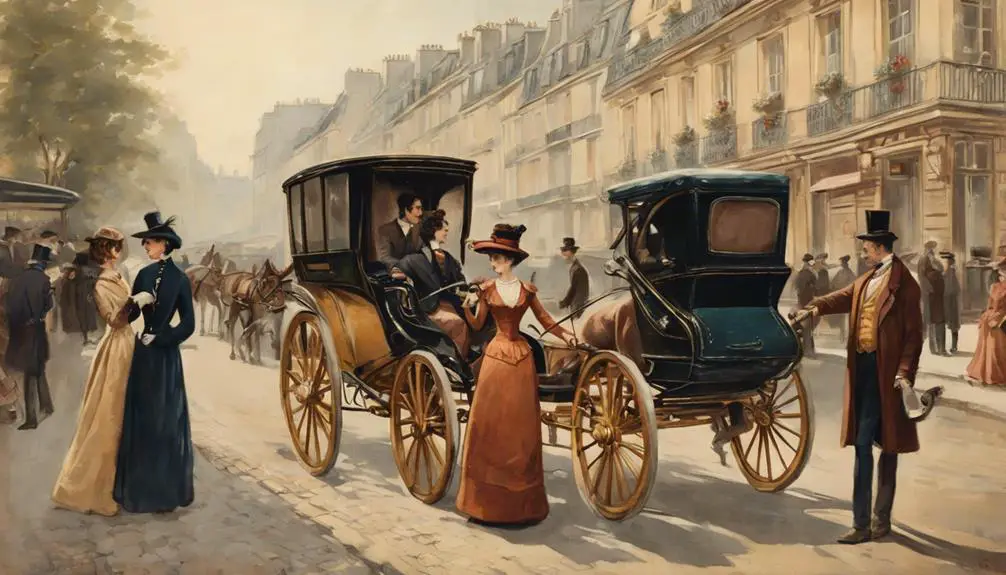
The roots of Paris Fashion Week run deep, tracing back to the late 19th century when Charles Frederick Worth revolutionized the fashion industry with live model presentations, laying the groundwork for haute couture. Can you imagine the excitement of seeing beautiful garments come to life on real people, not just sketches? Worth's innovative approach changed everything. He didn't just design; he created an experience.
In 1868, the Chambre Syndicale de la Haute Couture was established to regulate and protect these fashion standards in France. This was a big deal! It guaranteed that haute couture wasn't just a fancy term but a mark of quality and artistry. Fast forward to 1973, and you've got the first official Paris Fashion Week recognized by the Fédération Française de la Couture. It followed the iconic Battle of Versailles fashion event, which was like the Olympics of fashion.
Initially, Paris Fashion Week was all about haute couture, showcasing the most exquisite designs you could dream of. But, as trends changed, it evolved to include ready-to-wear collections too. Now, you get to experience two big events each year, with designers presenting Spring collections in February and Fall collections in September. It's a fashion lover's paradise! So, whether you're a designer or just a fan, there's always something fresh to discover at Paris Fashion Week. Isn't that exciting?
Transformation of Fashion Presentations
From intimate gatherings to grand spectacles, Paris Fashion Week has undergone a remarkable transformation in how fashion is presented. Can you believe it all started in the late 19th century with small, private events? Fast forward to 1973, when the first official Paris Fashion Week kicked off, and suddenly fashion was a show for everyone. Remember Thierry Mugler's show in 1984 at Le Zenith stadium? That event attracted 6,000 attendees, proving that fashion could be a thrilling experience for the masses.
The emergence of ready-to-wear collections in the 1960s, thanks to designers like Yves Saint Laurent, made fashion accessible to a wider audience. Now, it's not just about exclusive couture; it's about everyone feeling included. Today, fashion shows resemble dramatic performances with custom-built sets and artistic themes. It's storytelling at its finest!
But wait, there's more! The rise of digital innovations has changed the game. Think about it— live streaming and digital formats have turned traditional presentations into interactive experiences. You can now watch the latest looks from anywhere in the world, and it feels like you're right there in the front row.
Cultural Impact of Paris Fashion Week
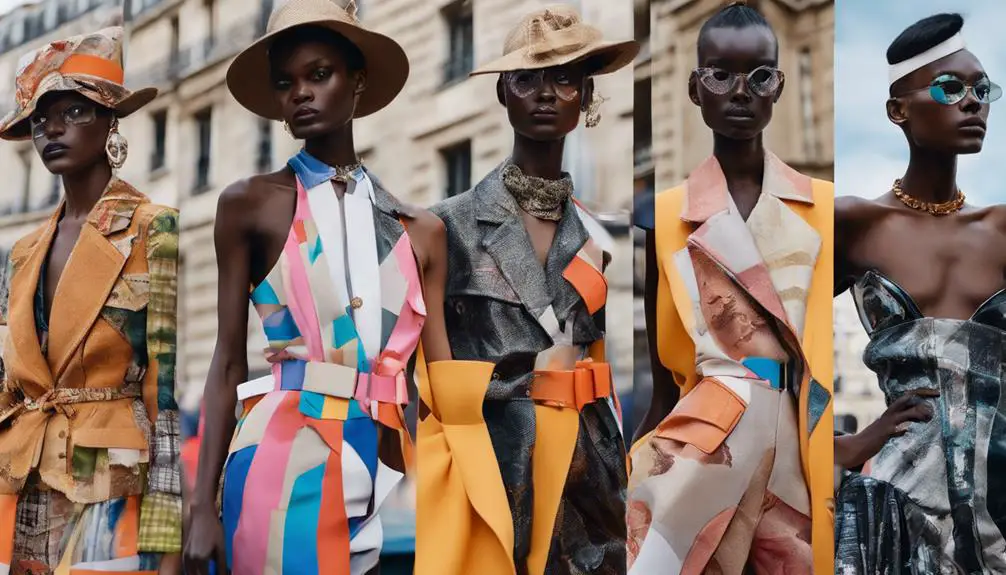
Paris Fashion Week isn't just about showcasing the latest designs; it's a cultural phenomenon that shapes global trends and influences the fashion narrative. You see, this event draws attention from international media, buyers, and fashion enthusiasts, making it a key player in the fashion world. It's like a spotlight shining on creativity, where emerging designers can flaunt their unique cultural identities. How cool is that?
By embracing diversity representation, Paris Fashion Week enriches the fashion story, proving that style comes from all corners of the globe. Imagine the streets of Paris transforming into an extended runway, where everyday people mix with high-fashion icons. It's a vibrant celebration of art, culture, and innovation!
As you wander through the city during this time, you can feel the buzz of excitement. You're witnessing a melting pot of ideas that not only promotes French culture and heritage but also sparks global conversations. Remember the Battle of Versailles back in 1973? That was a pivotal moment that showcased how fashion can reflect societal attitudes and break norms.
Milestones and Iconic Events
Milestones in fashion history often coincide with Paris Fashion Week, marking pivotal moments that redefine the industry. For instance, can you imagine being part of the iconic Battle of Versailles in 1973? This event brought together French and American designers, setting the stage for incredible designer collaborations that still inspire today!
Fast forward to 1947, when Christian Dior launched his Corolle collection, introducing the revolutionary New Look. This was a game-changer! It not only influenced fashion trends but also cemented Paris's reputation as the ultimate fashion capital. Then, in 1984, Thierry Mugler's show at Le Zenith stadium attracted a whopping 6,000 attendees. Talk about a runway innovation!
The 1990s brought supermodels like Naomi Campbell and Kate Moss into the spotlight. They transformed runway shows into glamorous cultural events that had everyone buzzing. And who could forget Karl Lagerfeld? His Chanel shows in the 80s and 90s were legendary, featuring elaborate sets and theatrical presentations that redefined fashion show standards. You really felt like you were part of a grand performance!
These milestones not only showcase the creativity and talent within the fashion world but also highlight how Paris Fashion Week has consistently pushed boundaries. So, whether you're a fashion fanatic or just curious, it's exciting to see how these moments shaped the industry we recognize and love today. What's your favorite fashion moment?
Future Trends in Fashion Week
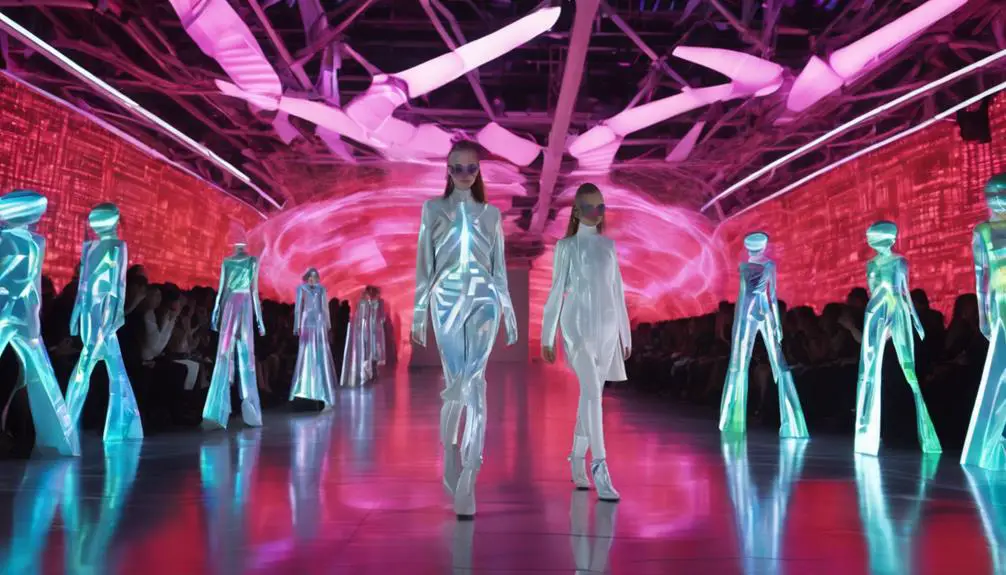
As the fashion industry evolves, future Paris Fashion Weeks are set to embrace groundbreaking changes that prioritize sustainability and inclusivity. You're going to see designers really stepping up their game by adopting sustainable practices, using eco-friendly materials, and responding to your demand for ethical fashion. Isn't that exciting? In addition, expect to see unique tailoring techniques in collections, such as transforming vintage pieces into modern styles, which will highlight both creativity and sustainability tailoring vintage clothing.
Digital engagement will also play a huge role. Imagine enjoying live-streamed fashion shows right from your couch! With the integration of virtual reality, you'll feel like you're walking the runway yourself. These innovations will allow you to connect with collections in ways we've never seen before.
And let's not forget about diversity! Future shows are expected to feature a broader range of body types, ethnicities, and ages, making the runway a more inclusive space. Everyone deserves to see themselves represented in fashion, right?
You might even notice a mix of in-person events and digital experiences, known as hybrid shows. This way, whether you're in Paris or halfway around the world, you won't miss a thing.
Plus, advancements in technology, like artificial intelligence and augmented reality, are set to change how collections are designed and presented. Who knows what creative wonders will emerge?
Frequently Asked Questions
How Has Paris Fashion Week Evolved?
Curious how Paris Fashion Week's changed? It's evolved through stunning runway trends, innovative designer showcases, and global influence, embracing digital transformation, sustainability initiatives, and a profound cultural impact that keeps you on the edge of your seat.
What Is Special About Paris Fashion Week?
Paris Fashion Week's special because it showcases iconic designers, influencing global trends. You'll witness extraordinary creativity and cultural impact, with each collection telling a story that resonates far beyond the runway, enchanting fashion enthusiasts worldwide.
What Is the History of Fashion Week?
Fashion weeks transformed the industry, showcasing designer creativity, dictating fashion trends, and enchanting audiences. You'll see how these events evolved, highlighting the artistry of designers and the excitement of their innovative showcases throughout history.
How Old Is Paris Fashion Week?
Paris Fashion Week's been around since 1973, making it over 50 years old. You've seen its global influence shape the fashion industry, showcasing groundbreaking designs and setting trends that resonate worldwide. It's truly a fashion powerhouse.
